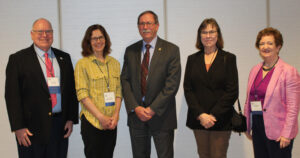
PAC Meeting, March 26, 2023
L to R: Michael A. Boyd, Helen A. Grogan, E. Vincent Holahan, Kathryn A. Higley, & Ruth E. McBurney
Membership
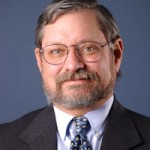
WILLIAM E. KENNEDY, JR. has extensive experience as a project manager, task leader, and individual contributor covering a broad range of health physics and nuclear engineering topics. He received his BS and MS degrees in Nuclear Engineering from Kansas State University. Mr. Kennedy has been involved in the development of environmental pathway and radiation dosimetry models used to assess potential health and environmental impacts that resulted from releases of radionuclides to the environment. He specializes in the use of these models in environmental dose reconstruction, radioactive materials transport, radioactive waste disposal, and evaluation of nuclear facility operating practices. Over the past 37 y, Mr. Kennedy has led and contributed to a variety of projects for the U.S. Nuclear Regulatory Commission, the U.S. Department of Energy, the Electric Power Research Institute, and private industry. He has been involved with development of the technical basis for revised standards and regulations, and serves as the chair of ANSI/HPS N13.12, Surface and volume Radioactivity Standards for Clearance. He served as a consultant to the International Atomic Energy Agency (IAEA), Vienna, Austria, and was a member of the IAEA Advisory Groups to evaluate the Derivation of Exempt Quantities for Application to Terrestrial Waste Disposal and Derivation of Exempt Quantities for Recycle of Materials from Nuclear Facilities. He was an invited lecturer for IAEA training courses on Management of Radioactive Waste from Nuclear Power Plants at Argonne National Laboratory; on Safety Assessment Modeling for Low and Intermediate Radwastes in Rio de Janeiro, Brazil and in Cairo, Egypt; and on Environmental Monitoring in Kiev, Ukraine. In 1990, he received the Health Physics Society's (HPS) prestigious Elda E. Anderson Award. He served as a member of the HPS Board of Directors from 1998 through 2001 and was selected as a fellow of the society in 2002. He was a member of the U.S. delegation to the 10th Congress of the International Radiation Protection Association in Hiroshima, Japan. |
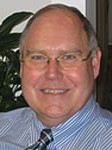
Michael A. Boyd is the Director of the Center for Science and Technology in the U.S. Environmental Protection Agency’s Office of Radiation and Indoor Air/Radiation Protection Division. The Center is responsible for the development of radiation dose and risk assessment guidance and for providing technical support for radiation protection policy issues. Mr. Boyd is also the co-chair of the Federal Guidance Subcommittee of the Interagency Steering Committee on Radiation Standards. He is a member of the NCRP’s PAC 5 and was recently elected to the NCRP Board of Directors. He is a member of the International Commission on Radiological Protection (ICRP) Committee 4 and chairs ICRP Task Group 98 on Application of the Commission’s Recommendations to exposures resulting from contaminated sites from past industrial, military and nuclear activities. Since 2015, he has chaired the Organisation for Economic Cooperation and Development/Nuclear Energy Agency's Committee on Radiological Protection and Public Health. Mr. Boyd is an active member of the Health Physics Society and is a delegate to the International Radiation Protection Association where he is currently a member of its International Congress Program Committee for IRPA 15, which will be held in Seoul, Korea in May 2020. He has a BS in Biology and MS in Public Health from the University of North Carolina at Chapel Hill. |

SHIH-YEW (S.Y.) CHEN is currently an adjunct faculty of the Professional Master of Health Physic Program at the Illinois Institute of Technology (IIT), Chicago. From this program, he retired as the director in 2022. Before joining IIT in 2013, Dr. Chen was a Senior Environmental Systems Engineer and served as the Strategic Area Manager in Risk and Waste Management in the Environmental Science Division at Argonne National Laboratory, Argonne, Illinois. He received his BS in nuclear engineering from National Tsing Hua University in Taiwan and his MS and PhD in nuclear engineering from the University of Illinois at Champaign-Urbana. Dr. Chen's professional interests include radiation protection, human and environmental health risk, and nuclear accident analysis, with expertise in environmental cleanup, radioactive material disposition management, and nuclear waste transportation. Dr. Chen was an NCRP member from 1999 to 2017, became a Distinguished Emeritus member in 2017, and served on its Board (2004 to 2011). In addition, he served as NCRP Scientific Vice President on Environmental Radiation and Waste Issues (2004 to 2017). Dr. Chen has served on the U.S. Environmental Protection Agency's Science Advisory Board/Radiation Advisory Committee from 2009 to 2015. He is a long-standing member of the Health Physics Society and the American Nuclear Society. He was elected to Fellow by the Health Physics Society in 2013 and is a Certified Health Physicist by the American Board of Health Physics. While at Argonne, Dr. Chen developed an integrated risk assessment program that addresses the broad-based issues to support federal risk-based policies. Dr. Chen had served in numerous capacities at NCRP, including chairing Scientific Committee (SC) 87-4. The committee's effort led to the publication of Report No. 141, Managing Potentially Radioactive Scrap Metal. He also chaired Scientific Committee SC 5-1, which led to the publication of Report No. 175, Decision Making for Late-Phase Recovery from Major Nuclear or Radiological Incidents. In addition, he served as Chair of NCRP 2005 Annual Meeting Program Committee, Managing the Disposition of Low-Activity Radioactive Materials, and as Co-Chair of NCRP 2013 Annual Meeting Program Committee, Radiation Dose and the Impacts on Exposed Populations. |
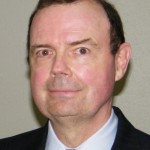
ALLEN G. CROFF is an adjunct professor at Vanderbilt University lecturing and participating in projects concerning the nuclear engineering and the nuclear fuel cycle, and a consultant to the Nuclear Waste Technical Review Board. He worked at Oak Ridge National Laboratory (ORNL) for 30 y in areas concerning waste management, nuclear fuel cycle, and nuclear materials research and development. His career at ORNL included creation of the ORIGEN2 computer code, developing and evaluating radioactive waste classification systems, and evaluating current and advanced nuclear fuel cycles. After retiring from ORNL in 2003, he was vice-chairman of the Advisory Committee on Nuclear Waste and Materials that provided technical advice to the commissioners of the U.S. Nuclear Regulatory Commission on waste disposal, the fuel cycle, and nuclear materials management from 2004 to 2008. He then became a senior technical advisor to the Blue Ribbon Commission on America's Nuclear Future from 2010 to 2012 in parallel with his activities at Vanderbilt University. Throughout his career he had extensive external U.S. and international involvements on technical review, oversight and integration committees. He has been a member of 10 committees, and the Nuclear and Radiation Studies Board of the National Academy of Sciences, he led the committee that wrote NCRP Report No. 139 concerning risk-based waste classification, he was a member of the Nuclear Energy Research Advisory Committee, and chaired the Nuclear Development Committee of the Nuclear Energy Agency for 10 y. |

PATRICIA A. FLEMING is Professor Emerita in Philosophy at Saint Mary’s College, Notre Dame having retired as its Provost. She resides in Logandale, Nevada, one of the areas which experienced fallout from the above ground nuclear testing in the 1950s. She received her master’s and doctorate from Washington University in St. Louis, Missouri. While there, she served as the assistant editor of the Philosophy of Science Journal. She has also served as a consultant to the Organization for Economic Co-operation and Development/Nuclear Energy Agency in Paris, France. Dr. Fleming has published and lectured internationally on the ethical and epistemological issues associated with the disposal of high-level nuclear waste, including the use of expert elicitation methodology in site characterization, waste management and indigenous populations, informed consent in stakeholder populations, and circularity in regulatory policy. Dr. Fleming’s familiarity with ethical concerns regarding the health effects from radiation exposure led to her appointment on the National Academy of Science Committee to Assess the Scientific Information for the Radiation Exposure Screening and Education Program. She served on the Veterans Board on Dose Reconstruction from 2005 to 2013. Her current project is a manuscript on ethics and the wide gamut of nuclear matters. |
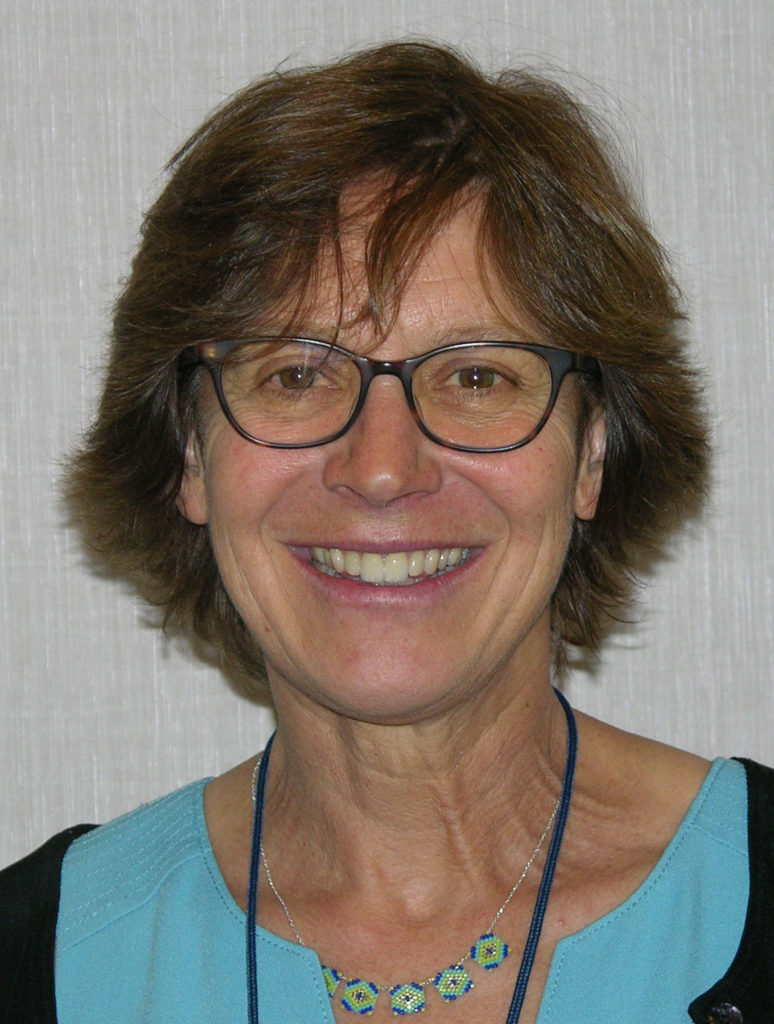
HELEN A. GROGAN
is President of Cascade Scientific, Inc., an environmental consulting firm. Dr. Grogan received her PhD from Imperial College of Science and Technology at the University of London in 1984 and has more than 25 y of experience in radioecology, environmental dose reconstruction, and the assessment of radioactive and nonradioactive hazardous wastes. She first worked at the Paul Scherrer Institute in Switzerland on the performance assessment of radioactive waste disposal for the Swiss National Cooperative for the Disposal of Radioactive Waste (Nagra). Dr. Grogan was actively involved in the early international cooperative efforts to test models designed to quantify the transfer and accumulation of radionuclides and other trace substances in the environment. Validation of computer models developed to predict the fate and transport of radionuclides in the environment remains a key interest of hers. In 1989 Dr. Grogan returned to the United Kingdom as a senior consultant to Intera Information Technologies before moving to the United States a few years later, where she has worked closely with Risk Assessment Corporation managing the technical aspects of a wide variety of projects that tend to focus on public health risk from environmental exposure to chemicals and radionuclides. Dr. Grogan has served on committees for the National Academy of Sciences, the International Atomic Energy Agency, the U.S. Environment Protection Agency, and NCRP. She co-edited the text book Radiological Risk Assessment and Environmental Analysis published by Oxford University Press in July 2008, and authored the chapter on Model Validation. |

Kathryn A. Higley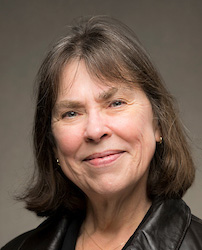
is the Oregon State University (OSU) Distinguished Professor of Nuclear Science and Engineering. She recently served as the Interim Director for the Center for Quantitative Life Sciences at OSU, a genome-enabled and data-driven, high-performance computing research center in the life and environmental sciences. For more than a decade she was Head of the School of Nuclear Science and Engineering. Dr. Higley received her PhD and MS in Radiological Health Sciences from Colorado State University and her BA in Chemistry from Reed College. She has held Reactor Operator and Senior Reactor Operator's licenses and is a former Reactor Supervisor for the Reed College TRIGA reactor. Dr. Higley started her career as a Radioecologist for Portland General Electric. She later worked for the Pacific Northwest National Laboratory as a Senior Research Scientist in environmental health physics. Dr. Higley has been at Oregon State University since 1994, teaching undergraduate and graduate topics on radioecology, dosimetry, radiation protection, radiochemistry, and radiation biology. She previously served as Vice Chair of the International Commission on Radiological Protection's Committee 4 (Application of the Commission's Recommendations). She is a fellow of the Health Physics Society and a Certified Health Physicist. Dr. Higley was first elected to the Council in 2014, appointed to the Board of Directors in 2023, and has been a member of the Budget and Finance Committee since 2022. She was Co-Chair of Council Committee (CC) 2 on Meeting the Needs of the Nation for Radiation Protection and a Member of CC 1, Radiation Protection Guidance for the United States; Program Area Committee 5, Environmental Radiation and Radioactive Waste Issues; SC 46-17, Radiation Protection in Educational Institutions; and SC 64-23, Cesium in the Environment. She was a member of the 2016 Annual Meeting Program Committee on "Meeting the Needs of the Nation for Radiation Protection" and presented "Education or Training: Does it Matter?" the same year. Dr. Higley served on the WARP (Where Are the Radiation Professionals?) Initiative Workshop. At the end of the 2024 Annual Meeting she will become the seventh President of NCRP. Her areas of interest include environmental transport and fate of radionuclides, radioecology, radiochemistry, radiation dose assessment, nuclear emergency response, environmental regulations, and risk communication. |
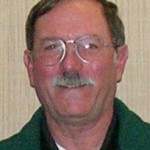
E. Vincent Holahan
is a radiation biologist with a specialization in cellular and molecular biology. He has BS degrees in chemistry and biology from Gonzaga University and a PhD in radiology and radiation biology from Colorado State University. He has been a member of the Radiation Research Society since 1978. He currently is employed by the U.S. Nuclear Regulatory Commission (NRC) and is the Senior Level Technical Advisor for Health Physics in the Office of Nuclear Material Safety and Safeguards. In this position he is responsible for performing risk assessment analyses designed to improve the knowledge of actual and potential radiological impacts of NRC licensed facilities and activities. In conjunction with NCRP and the National Research Council/National Academy of Sciences (NRC/NAS), he assists in the development of the technical basis for initiating, planning and issuing new federal regulations and guidance to limit exposure to ionizing radiation from licensed byproduct material in order to protect public health and safety and the environment. Dr. Holahan's activities include service as a technical advisor to the U.S. delegation to the United Nations Scientific Committee on the Effects of Atomic Radiation since 2000 and as head of delegation since 2017. He also has served as the NRC delegate to the Nuclear Energy Agency (NEA) Committee on Radiation Protection and Public Health and as the past Vice Chairman to the NEA Information System on Occupational Exposure. Dr. Holahan also represented the United States at the International Atomic Energy Agency's (IAEA) Radiation Safety Standards Committee and provides technical support to the IAEA Radiation Safety and Monitoring Section. Prior to joining the NRC in 1996, Dr. Holahan served as a Senior Program Officer to the Board on Army Science and Technology at NRC/NAS and as a member of the U.S. Army. During his 35 y of service in the U.S. Army and Army Reserve, COL (retired) Holahan was assigned to a variety of positions as a nuclear medical sciences officer and is a U.S. Department of Defense certified Master Consequence Management Specialist for chemical, biological, radiological, nuclear, and high explosive events. |

KATHERINE A. KIEL is a Professor of Economics at the College of the Holy Cross in Worcester, Massachusetts. Her research is on real estate price indices, racial discrimination in housing markets, and the demand for environmental quality in the United States. Her work has been published in journals such as Land Economics and the Journal of Urban Economics. She is currently a board member for the New England Economic Partnership and is on the Board of Economic Advisors for Associated Industries of Massachusetts. In the past she served on the U.S. Environmental Protection Agency's Advisory Council on Clean Air Compliance. She received her PhD in Economics from the University of California at San Diego and her AB from Occidental College. |
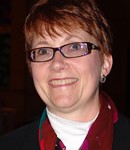
JILL A. LIPOTI
retired (again) in 2018 as an Assistant Teaching Professor at the Department of Human Ecology at Rutgers University. She conceived and taught “Introduction to Sustainability” and the “Practicum in Sustainability” from 2014 to 2018 as part of the Minor in Sustainability. Moving to Whidbey Island in Puget Sound, Jill is currently serving on the Island County Marine Resources Committee as Vice Chair, and as Commissioner for the Scatchet Head Water District. |
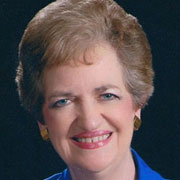
RUTH E. MCBURNEY is the Executive Director of the Conference of Radiation Control Program Directors. In that position, she manages and directs the administrative office for the organization. Prior to taking that position in January 2007, she was the Manager of the Radiation Safety Licensing Branch at the Texas Department of State Health Services, culminating 25 y of service in the Texas Radiation Control Program, most of which involved licensing and standards development. Ms. McBurney has served on the U.S. Nuclear Regulatory Commission's Advisory Committee on the Medical Use of Isotopes and the U.S. Food and Drug Administration's National Mammography Quality Assurance Advisory Committee. She is currently serving as a Member of NCRP, and is also on the Board of Directors. She served as a consultant to the International Atomic Energy Agency in the categorization of radiation sources and recently served on a committee of the National Academy of Science regarding replacement technologies for high-risk radiation sources. She has also been a U.S. delegate to the International Radiation Protection Association's 10th, 11th, 12th, and 13th Congresses. Ms. McBurney holds a BS in Biology from Henderson State University in Arkansas and an MS in Radiation Sciences from the University of Arkansas for Medical Sciences. She is also certified in comprehensive health physics by the American Board of Health Physics. |
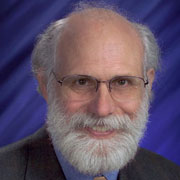
BRUCE A. NAPIER is a Staff Scientist in the Environmental Analysis and Engineering Group at Pacific Northwest National Laboratory in Richland, Washington and has been for the past 41 y. Mr. Napier works with the development and operation of models concerned with the environmental transport of radiological and chemical contaminants. His expertise and experience lie in the areas of radiation dose reconstruction, computer modeling, environmental analysis, and human health risk analysis. He is an author of the widely-used GENII computer code. Mr. Napier was the Chief Scientist for the Hanford Environmental Dose Reconstruction Project that evaluated releases from the Hanford Site during production of plutonium. He is now a Principal Investigator for the U.S./Russian Joint Coordinating Committee on Radiation Effects Research, working on the dose reconstructions at the Russian Mayak Production Association for both the workers at and the populations living near the points of atmospheric release and along the Techa River downstream. Mr. Napier is a Scientific Vice President and past member of the Board of Directors of NCRP, a past committee member of the U.S. Environmental Protection Agency's Science Advisory Board and the National Academy of Sciences, a Fellow of the Health Physics Society, and past Chair of oversight panels for the National Cancer Institute's Chernobyl Studies. |
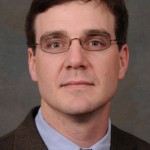
Brian A. Powell
is the Jerry E. and Harriet Calvert Dempsey Associate Professor of Waste Management in the Department of Environmental Engineering and Earth Sciences at Clemson University. Dr. Powell's research focuses on understanding and prediction of the physical, chemical and biological processes which govern the mobility of radionuclides in natural and engineered systems. He has a BS in Chemistry from the University of Montevallo, and an MS and PhD in Environmental Engineering and Science from Clemson University. Prior to joining the faculty at Clemson University, Dr. Powell held postdoctoral appointments at the Lawrence Livermore National Laboratory and the Lawrence Berkeley National Laboratory. Dr. Powell has conducted sponsored research in a wide range of projects dealing with topics of sorption and environmental transport of actinides, nuclear forensics, development of radiation detection and radiation detection laboratory courses, iodine, radium, strontium geochemistry in wetland and subsurface sediments, radionuclide geochemistry of saltstone and solid waste performance assessments at the Savannah River Site, measurement of thermodynamic parameters supporting advanced fuel cycle chemistry, and related topics. The knowledge gained from this work can be used to evaluate risk posed by subsurface contamination of radionuclides, to design remediation strategies for contaminated sites, and to facilitate the use of safe disposal practices. Along with serving on the NAMP PAC 5 committee, Dr. Powell is also a member of the Radiation Safety Committee of the U.S. Environmental Protection Agency Scientific Advisory Board and a member/lecturer for the U.S. Department of Energy National Analytical Management Program, Education and Training Subcommittee. Additionally, Dr. Powell is the winner of the 2014 South Carolina Governor's Young Researcher Award for Excellence in Scientific Research and the 2011 Clemson University Sigma Xi Young Investigator of the Year. |


 News & Events
News & Events